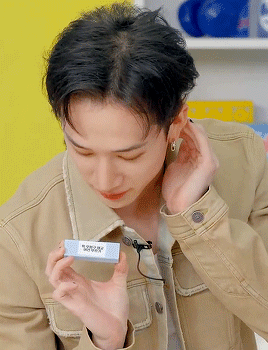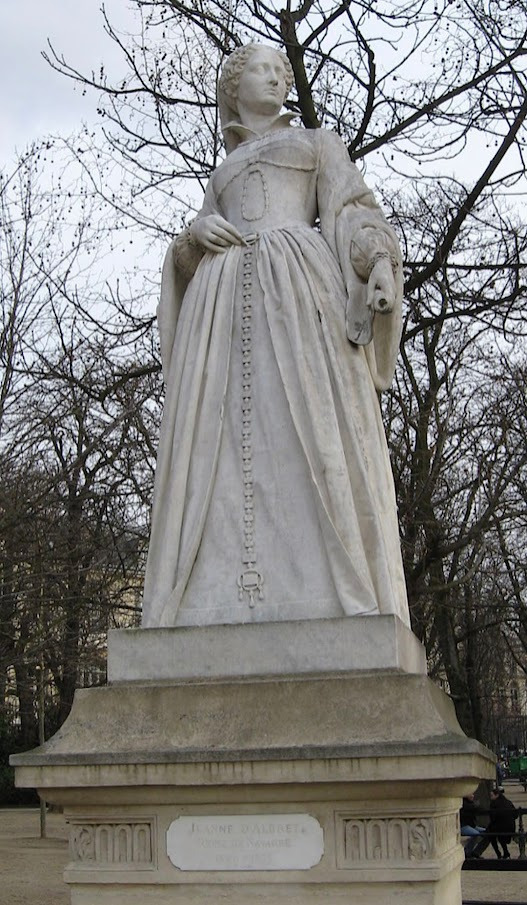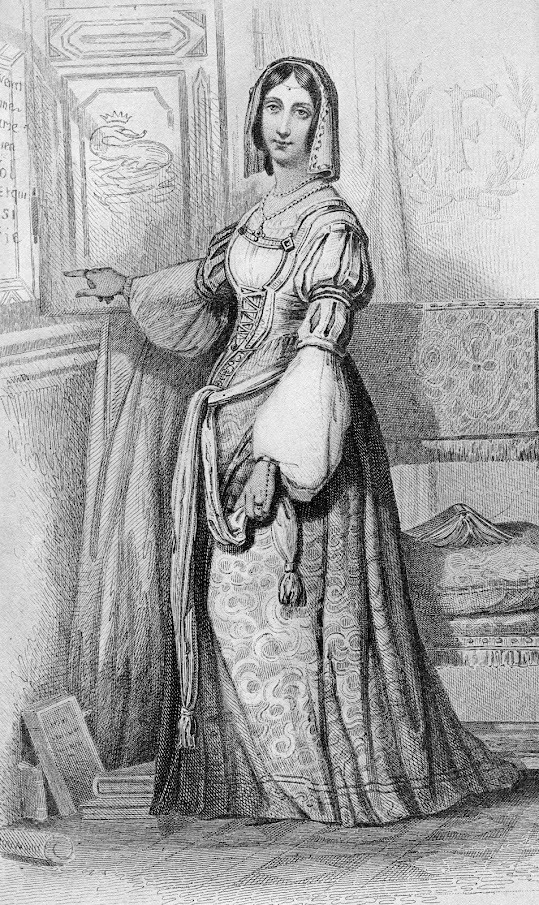#more wide reaching
Text
some batkids + author self-insertion
dick
gets a hot red head alien girlfriend based in part on perez's first wife (wolfman and perez)
"one bad apple spoils the bunch" view on cops (dixon)
sees a couple of girls and assumed the redhead is the one with the irish accent, surprised when it's the asian girl (dixon, based on a real story where he heard an irish accent on tv and was surprised when it was an asian girl)
implications of bisexuality that align explicitly with the writer's very own personal experience of bisexuality (greyson)
unable to not flirt with anything that moves (greyson)
let's just go ahead and put greyson's entire run here.
jason
entirety of red hood and the outlaws (lobdell, enough said)
tim
anti-drug (dixon)
can be condescending to his friends and girls (dixon)
honestly i don't think the good moral boy who would never have premarital sex thing is actually self-insertion, that's more dixon wish fulfillment of his ideal 14 year old boy. rules for the characters and not for him!
the weird military circlejerking (willingham)
obsession with bernard (fitzmartin)
steph
pro-life (dixon)
anti-welfare (dixon)
hates bill clinton + the court system (dixon)
personal vengeance over restorative justice framed as the right thing (dixon)
bootstraps mentality (dixon)
damian
child who never met his father because father was too busy saving other people (morrison, morrison has explicitly said that their parents marriage didn't work out due to their father's inability to prioritize his marriage and family over helping other people + the affair)
child who was saved by their father from a life of darkness (morrison explicitly has credited their father with saving their life at their lowest by giving them a typewriter)
child who suffers and pays the price from divorce conflict due to parents being so caught up in their own conflict they refuse to listen to the child's wants and needs (morrison, as racist as the conflict between bruce and talia is damian's entire story is intrisically wrapped up in morrison's working through their own personal feelings of their parents' divorce)
becomes a vegetarian (morrison)
#anyways this isn't a judgement or anything or even a comprehensive list#just some examples of writers self inserting into their characters#arguably tim is more of a reader self insert so i think dixon overall put less of his own views into tim to keep his character#more wide reaching#but stephanie is honestly filled to the brim with self-inserted dixon thoughts and feelings as her base character#not a full list of batkids either there's too many
47 notes
·
View notes
Text









#stray kids#bystay#staysource#bang chan#bang chan gifs#stray kids gifs#skz#skz gifs#rollerblades in one week late. chris gifs? anyone want chris gifs?#cried making this btw just from the sheer love i feel for him. crazy#2nd and 4th gifs look at him!!!!!! look at hiiiiiiim! god.#every day im like i have reached the maximum of love for chris a person is capable of. i am all full on love for chris. the lid is on.#and then the next day i love him more#anw.....prettiest boy in the whole wide world#my gifs#forgot that one
199 notes
·
View notes
Text
Sorry guys, rant incoming. I considered deleting this but I put too much effort in.
"girlboss" "girl dinner" "girl math" "boy math" "gen z are making fun of us for wearing x" "here's how to dress like gen z:" "girlies" "girl's night" "boy's night" "me and the boys" "90s kid"
"I don't feel like an adult" "I'm 34 and I can tell you, I still don't feel like an adult either." "My parents seemed like real adults when they were my age." "I still feel like a teenager."
Maybe you'd feel more like an adult if you started calling yourself one. Maybe you'd feel more like an adult if you stopped trying to dress like a teenager. Maybe you should move your bed out from the wall and get a wallet. Maybe find a calendar app that works for you.
You are an adult. Even if you live with your parents. Even if you do part-time shift work at minimum wage. Even if you haven't graduated college. Even if you are single. These are adult things to do. Because you are doing them. And you are an adult. Start treating yourself like an adult. Fake it 'till you make it if you have to.
In other, writing-related, news:
That trend on TikTok of 20-40 something women authors (and writers yet to be published) promoting their books like,
"Omg! I can't believe I've sold X number of copies!! I never thought I would!" "Ahhhh imagine publishing your book and all your dreams come true and now you get to meet famous authors and work with big names in the industry!!" "Would you read a book where [proceeds to list a bunch of oversaturated tropes that tell me nothing about the actual plot]?"
It reeks of infantilization. If you didn't believe anyone would want to read your book, why should I? You made it on the NYT bestseller list! Stop acting like a mega-fan who got to meet a celebrity. You are their peer! "Would you read a book--" What if I wouldn't? Why does it matter to you what I think of your book? And for the love of god stop hiding behind tropes you know are already popular. "Here is my book: This is what it is about." Have some goddamn confidence.
It is fine to mention in passing "this idea was really far-fetched so I didn't know if it would appeal" or "I was struggling with self-esteem when I wrote this". It's fine to fan a little bit. It's fine to discuss the tropes in your book. But why are you building your brand as an author off of your inferiority complex? You are using your poor self-esteem as a marketing tactic to seem "humble" and "relatable" but it's coming across as unprofessional and desperate for reassurance. You are an adult. You are competent. The more you act like it the more you will believe it.
And of course, I haven't seen a man promote his book this way...
On another note, do any of the 20-40 something women writers who do "write with me" videos on TikTok actually enjoy writing or are they just doing it for the aesthetic?
They all have gorgeous minimalism writing spaces full of white and pink and a macbook beneath a window. Their makeup is done and they are conventionally pretty to start with. But their entire video is just them talking about how little progress they made, how many pages they deleted, how often they got distracted, how frustrated they are. And like, yeah. We all have those days. But what about the good lines you can't wait to share? The days when the words just flow? The cool stuff you learned while researching? Why don't you ever make videos about that?
Is this some other attempt to seem "relatable" by only talking about the "bad" side of writing? Because again, it's coming across as lacking confidence at best and, at worst, that you don't actually know how to write. And that is not the brand you want as an author.
Again, its always women. Why must women market their self-esteem issues in order to sell their art? Why must we be perpetually awestruck children (girlies, book girls) in over our heads?
#also why do I get the sense these women are selling a lifestyle more than they are actually promoting their own books?#I feel like someone more qualified than me could link this to modelling good christian gender roles#and cultural conformity or something#it isn't lost on me how much of this is about trying to seem humble#and how much validation is tied to protestant success and hard work ideas#is this where the indoctrination starts?#give us 'role models' as influencers#also Alex Aster of Lightlark fame is the WORST for this#her content makes me physically sick to watch#and again interesting that it is pretty widely agreed on at this point that she is an industry plant#interesting that the industry plant is leaning so heavy on the humility and infantilization of women tactics#as though appealing to protestant christians is a major concern of the industry#what's that about? is it just sales? or is it related to those evangelical groups trying get books banned?#how much influence does conservative christian america have within the trad pub industry?#maybe I am really reaching here idk#I don't have any sources#it's just speculation I am open to be proven wrong
25 notes
·
View notes
Text
i do appreciate their commitment to making arlecchino as butch as possible when she's not actually on screen
#cmon. they call her father. cmon#i wish they committed to making her more masculine instead of just like. a fem lady in a suit though.#but they're too lazy to branch out of their incredible basic model design#it's getting kind of annoying especially as they introduce more characters that Should have muscles but you know they won't#because they don't want to make a new 3d model even though they make a shitton of money off their gacha#genshin //#genshin impact#liza post#arlecchino#luckily the wide reaches of the imagination exist and i can envision her as masculine as i WANT
55 notes
·
View notes
Text
Clad in Justice and Worth


Written for the Inklings Challenge 2023 (@inklings-challenge). Inspired by the lives of Jeanne d'Albret and Marguerite de Navarre, although numerous liberties have been taken with the history in the name of introducing fantastical elements and telling a good story. The anglicization of names (Jeanne to Joan and Marguerite to Margaret) is meant to reflect the fictionalization of these figures.
The heat was unbearable, and it would grow only hotter as they descended into the lowlands. It was fortunate, Joan decided, that Navarre was a mountain country. It was temperate, even cold there in September. It would be sweltering by the sea.
The greater issue ought to have been the presence of Monluc, who would cut Joan’s party off at the Garonne River most like. The soldiers with whom she traveled were fierce, but Monluc had an entire division at the Garrone. Joan would be a prisoner of war if Providence did not see her through. Henry, perhaps, might suffer worse. He might be married to a Catholic princess.
Yet Joan was accustomed to peril. She had cut her teeth on it. Her first act as queen, some twenty years ago, had been to orchestrate the defense of her kingdom, and she was accustomed to slipping through nets and past assassins. The same could not be said of the infernal heat, which assaulted her without respite. Joan wore sensible travel clothing, but the layers of her skirts were always heavy with sweat. A perpetual tightness sat in her chest, the remnant of an old bout with consumption, and however much she coughed it would not leave.
All the same, it would not do to seem less than strong, so she hid the coughing whenever she could. The hovering of her aides was an irritant and she often wished she could just dismiss them all.
“How fare you in the heat, Majesty?”
“I have war in my gut, Clemont,” Joan snapped. “Worry not for me. If you must pester someone, pester Henry.”
He nodded, chastened. “A messenger is here from Navarre. Sent, I suspect, to induce you to return hence.”
“I would not listen to his birdcalls.”
“Young Henry said much the same.”
Joan stuffed down her irritation that Clemont had gone to Henry before he’d come to her. She was still queen, even if her son was rapidly nearing his majority. “Tell him that if the Huguenot leaders are to be plucked, I think it better that we all go together. Tell him that I would rather my son and I stand with our brothers than await soldiers and assassins in our little kingdom.”
Her aide gave a stiff nod. “At once, your Majesty.”
She would breathe easier when they reached the host at La Rochelle. Yet then, there would be more and greater work to do. There would be war, and Joan would be at the head of it.
*
When she awoke in the night, Joan knew at once that something was awry. It was cool. Gone was the blistering heat that had plagued them all day. Perhaps one of the kidnapping plots had finally succeeded.
Certainly, it seemed that way. She was in a cell, cool and dank and no more than six paces square. And yet—how strange! —the door was open.
Rising unsteadily to her feet, Joan crept towards the shaft of moonlight that fell through it. She glanced about for guards, but saw only a single prisoner in dirty clothes standing just beyond the threshold. He was blinking rapidly, as though the very existence of light bewildered him. Then, as Joan watched, he crept forward towards the gate of the jailhouse and out into the free air beyond. Joan listened for a long moment, trying to hear if there was any commotion at the prisoner’s emergence. When she could perceive none, she followed him out into the cool night air.
A lantern blazed. “Come quickly,” a voice hissed. “Our friend the Princess is waiting.”
The prisoner answered in a voice too quiet for Joan to hear. Then, quite suddenly, she heard his companion say, “Who is it that there behind you?”
The prisoner turned round, and Joan’s fingers itched towards her hidden knife. But much to her astonishment, he exclaimed, “Why, it is the lady herself! Margaret!”
But Joan had no opportunity to reply. Voices sounded outside her pavilion and she awoke to the oppressive heat of the day before. Coughing hard, Joan rolled ungracefully from her bed and tried to put away the grasping tendrils of her dream.
“The river is dry, Majesty” her attendant informed her as soon as she emerged from her pavilion, arrayed once again in sensible riding clothes. “The heat has devoured it. We can bypass Monluc without trouble, I deem.”
“Well then,” Joan replied, stifling another cough. “Glory to God for the heat.”
*
They did indeed pass Monluc the next day, within three fingers of his nose. Joan celebrated with Henry and the rest, yet all the while her mind was half taken up with her dream from the night before. Never, in all her life, had her mind conjured so vivid a sensory illusion. It had really felt cool in that jail cell, and the moonlight beyond it had been silver and true. Stranger still, the prisoner and his accomplice had called Joan by her mother’s name.
Joan had known her mother only a little. At the age of five, she had been detained at the French court while her mother returned to Navarre. This was largely on account of her mother’s religious convictions. Margaret of Angoulême had meddled too closely with Protestantism, so her brother the king had seen fit to deprive her of her daughter and raise her a Catholic princess.
His successor had likewise stolen Henry from Joan, for despite the king’s best efforts she was as Protestant as her mother. Yet unlike Margaret, Joan had gone back for her child. Two years ago, she had secretly swept Henry away from Paris on horseback. She’d galloped the horses nearly to death, but she’d gotten him to the armed force waiting at the border, and then at last home to Navarre. Sometimes, Joan wondered why her own mother had not gone to such lengths to rescue her. But Margaret’s best weapons had been tears, it was said, and tears could not do the work of sharp swords.
The Navarre party arrived at La Rochelle just before dusk on the twenty-eighth of September. The heat had faltered a little, to everyone’s great relief, but the air by the sea was still heavy with moisture. The tightness in Joan’s chest persisted.
“There will be much celebration now that you have come, Your Majesty,” said the boy seeing to her accommodations. “There’s talk of giving you the key to the city, and more besides.”
Sure enough, Joan was greeted with applause when she entered the Huguenot council. “I and my son are here to promote the success of our great cause or to share in its disaster,” she said when the council quieted. “I have been reproached for leaving my lands open to invasion by Spain, but I put my confidence in God who will not suffer a hair of our heads to perish. How could I stay while my fellow believers were being massacred? To let a man drown is to commit murder.”
*
Sometimes it seemed that the men only played at war. The Duke of Conde, who led the Huguenot forces, treated it as a game of chivalry between gentlemen. Others, like Monluc, regarded it as a business; the mercenaries he hired robbed and raped and brutalized, and though be bemoaned the cruelty he did nothing to curtail it.
There were sixty-thousand refugees pouring into the city. Joan was not playing at war. When she rose in the mornings, she put poultices on her chest, then went to her office after breaking her fast. There was much to do. She administered the city, attended councils of war, and advised the synod. In addition, she was still queen of Navarre, and was required to govern her own kingdom from afar.
In the afternoons, she often met with Beza to discuss matters of the church, or else with Conde, to discuss military matters. Joan worked on the city’s fortifications, and in the evenings she would ride out to observe them. Henry often joined her on these rides; he was learning the art of war, and he seemed to have a knack for it.
“A knack is not sufficient,” Joan told him. “Anyone can learn to fortify a port. I have learned, and I am a woman.”
“I know it is not sufficient,” the boy replied. “I must commit myself entirely to the cause of our people, and of Our Lord. Is that not what you were going to tell me?”
“Ah, Henry, you know me too well. I am glad of it. I am glad to see you bear with strength the great and terrible charge which sits upon your shoulders.”
“How can I help being strong? I have you for a mother.”
At night, Joan fell into bed too exhausted for dreams.
*
Yet one night, she woke once again to find her chest loose and her breathing comfortable. She stood in a hallway which she recognized at once. She was at the Château de Fontainebleau, the place of her birth, just beyond the door to the king’s private chambers.
“Oh please, Francis, please. You cannot really mean to send him to the stake!” The voice on the other side of the door was female, and it did not belong to the queen.
A heavy sigh answered it. “I mean to do just that, ma mignonne. He is a damned heretic, and a rabble-rouser besides. Now, sister, don’t cry. If there’s one thing I cannot bear, it is your weeping.”
At those words, a surge of giddiness, like lightning, came over Joan’s whole body. It was her own mother speaking to the king. She was but a few steps away and they were separated only by a single wooden door.
“He is my friend, Francis. Do you say I should not weep for my friends?”
A loud harumph. “A strange thing, Margaret. Your own companions told me that you have never met the man.”
“Does such a triviality preclude friendship? He is my brother in Our Lord.”
“And I am your true brother, and your king besides.”
“And as you are my brother—” here, Margaret’s voice cracked with overburdening emotion. She was crying again, Joan was certain. “As you are my brother, you must grant me this boon. Do not harm those I love, Francis.”
The king did not respond, so Joan drew nearer to the door. A minute later, she leapt backwards when it opened. There stood her mother, not old and sick as Joan had last seen her twenty years before, but younger even than Joan herself.
“If you’ve time to stand about listening at doors, then you are not otherwise employed,” Margaret said, wiping her tears from her face with the back of her hand. “I am going to visit a friend. You shall accompany me.”
Looking down at herself, Joan realized that her mother must have mistaken her for one of Fountainbleu’s many ladies-in-waiting. She was in her night clothes, which was really a simple day dress such as a woman might wear to a provincial market. Joan did not sleep in anything which would hinder her from acting immediately, should the city be attacked in the middle of the night.
“As you wish, Majesty,” Joan replied with a curtsey. Margaret raised an eyebrow, and instantly Joan corrected herself: “Your Highness.”
Margaret stopped at her own rooms to wrap herself in a plain, hooded cloak. “What is your name?” she asked.
“Joan, your Highness.”
“Well, Joan. As penance for eavesdropping, you shall keep your own counsel with regards to our errand. Is that clear?”
“Yes, your Highness,” Joan replied stiffly. Any fool could see what friend Margaret intended to visit, and Joan wished she could think of a way to cut through the pretense.
When Margaret arrived at the jail with Joan in tow, the warden greeted her almost like a friend. “You are here to see the heretic, Princess? Shall I fetch you a chair?”
“Yes, Phillip. And a lantern, if you would.”
The cell was nearly identical to the one which Joan had dreamed on the road to La Rochelle. Inside sat a man with sparse gray hair covering his chin. Margaret’s chair was placed just outside the cell, but she brushed past it. She handed the lantern to Joan and knelt down in the cell beside the prisoner.
“I was told that I had a secret friend in the court,” he said. “I see now that she is an angel.”
“No angel, monsieur Faber. I am Margaret, and this is my lady, Joan. I have come to see to your welfare, as best I am able.”
Now, Margaret’s hood fell back, and all at once she looked every inch the Princess of France. Yet her voice was small and choked when she said, “Will you do me the honor of praying with me?”
Margaret was already on her knees, but she lowered herself further. She rested one hand lightly on Faber’s knee, and after a moment, he took it. Her eyes fluttered closed. In the dim light, Joan thought she saw tears starting down her mother’s cheek.
When she woke in the morning, Joan could still remember her mother’s face. There were tears in her hazelnut eyes, and a weeping quiver in her voice.
*
Winter came, and Joan’s coughing grew worse. There was blood in it now, and occasionally bits of feathery flesh that got caught in her throat and made her gag. She hid it in her handkerchief.
“Winter battles are ugly,” Conde remarked one morning as Christmas was drawing near. “If the enemy is anything like gentlemen, they will not attack until spring. And yet, I think, we must stand at readiness.”
“By all means,” Joan replied. “Anything less than readiness would be negligence.”
Conde chuckled, not unkindly. “For all your strength and skill, madame, it is obvious that you were not bred for command. No force can be always at readiness. It would kill the men as surely as the sword. ‘Tis not negligence to celebrate the birth of Our Lord, for instance.”
Joan nodded curtly, but did not reply.
As the new year began, the city was increasingly on edge. There was frequent unrest among the refugees, and the soldiers Joan met when she rode the fortifications nearly always remarked that an attack would come soon.
Then, as February melted into March, word came from Admiral Coligny that his position along the Guirlande Stream had been compromised. The Catholic vanguard was swift approaching, and more Huguenot forces were needed. By the time word reached Joan in the form of a breathless young page outside her office, Conde was already assembling the cavalry. Joan made for the Navarre quarter at once, as fast as her lungs and her skirts would let her.
The battle was an unmitigated disaster. The Huguenots arrived late, and in insufficient numbers. Their horses were scattered and their infantry routed, and the bulk of their force was forced back to Cognac to regroup. As wounded came pouring in, Joan went to the surgical tents to make herself useful.
The commander La Noue’s left arm had been shattered and required amputation. Steeling herself, Joan thought of Margaret’s tearstained cheeks as she knelt beside Faber. “Commander La Noue,” she murmured, “Would it comfort you if I held your other hand?”
“That it would, Your Majesty,” the commander replied. So, as the surgeon brandished his saw, Joan gripped the commander’s hand tight and began to pray. She let go only once, to cover her mouth as she hacked blood into her palm. It blended in easily with the carnage of the field hospital.
Yet it was not till after the battle was over that Joan learned the worst of it. “His Grace, General Conde is dead,” her captain told her in her tent that evening. “He was unseated in the battle. They took him captive, and then they shot him. Unarmed and under guard! Why, as I speak these words, they are parading his corpse through the streets of Jarnac.”
“So much for chivalry,” murmured Joan, trying to ignore the memories of Conde’s pleasant face chuckling, calling her skilled and strong.
“We will need to find another Prince of the Blood to champion our cause,” her captain continued. “Else the army will crumble. If there’s to be any hope for Protestantism in France, we had better produce one with haste. Admiral Coligny will not serve. He’s tried to rally the men, to no avail. In fact, he has bid me request that you make an attempt on the morn.”
“Henry will lead.”
“Henry? Why, he’s only a boy!”
Joan shook her head. “He is nearly a man, Captain, and he’s a keen knack for military matters. He trained with Conde himself, and he saw to the fortification of La Rochelle at my side. He is strong, which matters most of all. If it’s a Prince of the Blood the army requires, Henry will serve.”
“As you say, Majesty,” said her captain with a bow. “But it’s not me you will have to convince.”
*
Joan settled in for a sleepless night. Her captain was correct that she would need to persuade the Huguenot forces well, if they were to swear themselves to Henry. So, she would speak. Joan would rally their courage, and then she would present them with her son and see if they would follow him.
Page after page she wrote, none of it any good. Eloquence alone would not suffice; Joan’s words had to burn in men’s chests. She needed such words as she had never spoken before, and she needed them by morning.
By three o’clock, Joan’s pages were painted with blood. Her lungs were tearing themselves to shreds in her chest, and the proof was there on the paper beside all her insufficient words. She almost hated herself then. Now, when circumstance required of her greater strength than ever before, all Joan’s frame was weakness and frailty.
An hour later, she fell asleep.
When Joan’s eyes fluttered open, she knew at once where she was. Why, these were her own rooms at home in Navarre! Sunlight flooded through her own open windows and drew ladders of light across Joan’s very own floor. Her bed sat in the corner, curtains open. Her dressing room and closet were just there, and her own writing desk—
There was a figure at Joan’s writing desk. Margaret. She looked up.
“My Joan,” she said. It started as a sigh, but it turned into a sob by the end. “My very own Joan, all grown up. How tired you look.”
The words seemed larger than themselves somehow. They were Truth and Beauty in capital letters, illuminated red and gold. Something in Joan’s chest seized; something other than her lungs.
“How do you know me, mother?”
“How could I not? I have been parted from you of late, yet your face is more precious to me than all the kingdoms of the earth.”
“Oh.” And then, because she could not think of anything else to say, Joan asked, “What were you writing, before I came in?”’
“Poetry.” Joan made a noise in her throat. “You disapprove?” asked her mother.
“No, not at all. Would that I had time for such sweet pursuits. I have worn myself out this night writing a war speech. It cannot be poetry, mother. It must be wine. It must–” then, without preamble, Joan collapsed into a fit of coughing. At once, her mother was on her feet, handkerchief in hand. She pressed it to Joan’s mouth, all the while rubbing circles on her back as she coughed and gagged. When the handkerchief came away at last, it was stained red.
“What a courageous woman you are,” Margaret whispered into her hair. “Words like wine for the soldiers, and yourself spitting blood. Will you wear pearls or armor when you address them?”
“I will address them on horseback in the field,” answered Joan with a rasp. “I would have them see my strength.”
Her mother’s dark eyes flickered then. Margaret looked at her daughter, come miraculously home to her against the will of the king and the very flow of time itself. She was not a large woman, but she held herself well. She stood brave and tall, though no one had asked it of her.
Her own dear daughter did not have time for poetry. Margaret regretted that small fact so much that it came welling up in her eyes. “And what of your weakness, child? Will you let anyone see that?”
Joan reached out and caught her mother’s tears. Her fingertips were harder than Margaret’s were. They scratched across the sensitive skin below her eyes.
“Did I not meet you like this once before? You are the same Joan who came with me to the jail in Paris once. I did not know you then. I had not yet borne you.”
“Yes, the very same. We visited a Monsieur Faber, I believe. What became of that poor man?”
Margaret sighed. She crossed back over to the desk to fall back into her seat, and in a smaller voice she said, “My brother released him, for a time. And then, when I was next absent from Paris, he was arrested again and sent to the stake before I could return.”
“I saw you save another man, once. I do not know his name. How many prisoners did you save, mother?”
“Many. Not near enough. Not as many as those with whom I wept by lantern light.”
“Did the weeping do any good, I wonder.”
“Those who lived were saved by weeping. Those who died may have been comforted by it. It was the only thing I could give them, and so I must believe that Our Lord made good use of it.”
Joan shook her head. She almost wanted to cry too, then. The feeling surprised her. Joan detested crying.
“All those men freed from prison, yet you never came for me. Why?”
“Francis was determined. A choice between following Christ and keeping you near was no choice at all, though it broke my heart to make it.”
If Joan shut her eyes, she could still remember the terror of the night she had rescued Henry. “You could have come with soldiers. You could have stolen me away in the night.”
Margaret did not answer. The tears came faster now and her fair, queenly skin blossomed red. So many years would pass between the dear little girl she’d left in Paris and the stalwart woman now before her. She did not have time for poetry, but if Margaret had been allowed to keep her that would have been different. Joan should have had every poem under the sun.
“Will you read it?” she asked, taking the parchment from her desk and pressing it into her daughter’s hands. “Will you grant me that boon?”
Slowly, almost numbly, Joan nodded. To Margaret’s surprise, she read aloud.
“God has predestined His own
That they should be sons and heirs.
Drawn by gentle constraint
A zeal consuming is theirs.
They shall inherit the earth
Clad in justice and worth.”
“Clad in justice and worth,” she repeated, handing back the parchment. “It’s a good poem.”
“It isn’t finished,” replied her mother.
Joan laughed. “Neither is my speech. It must be almost morning now.”
As loving arms closed around her again, Joan wished to God that she could remain in Navarre with her mother. She knew that she and Margaret did not share a heart: her mother was tender like Joan could never be. Yet all the same, she wanted to believe that they had been forged by the same Christian hope and conviction. She wanted to believe that she, Joan, could free the prisoners too.
She shut her eyes against her mother’s shoulder. When she opened them, she was back in her tent, with morning sun streaming in.
*
She came before the army mounted on a horse with Henry beside her. Her words were like wine when she spoke.
“When I, the queen, hope still, is it for you to fear? Because Conde is dead, is all therefore lost? Does our cause cease to be just and holy? No; God, who has already rescued you from perils innumerable, has raised up brothers-in-arms to succeed Conde.
Soldiers, I offer you everything in my power to bestow–my dominions, my treasures, my life, and that which is dearer to me than all, my son. I make here a solemn oath before you all, and you know me too well to doubt my word: I swear to defend to my last sigh the holy cause which now unites us, which is that of honor and truth.”
When she finished speaking, Joan coughed red into her hands. There was quiet for a long moment, and then a loud hurrah! went up along the lines. Joan looked out at the soldiers, and from the front she saw her mother standing there, with tears in her eyes.
#inklingschallenge#inklings challenge#team tolkien#genre: time travel#theme: visiting the imprisoned#with a tiny little hint of#theme: visiting the sick#story: complete#so i like to read about the reformation in october when i can#when the teams were announced i was burning through a book on the women of the reformation and these two really reached out and grabbed me#Jeanne in particular. i was like 'it is so insane that this person is not more widely known.'#Protestantism has its very own badass Jeanne/Joan. as far as i'm concerned she should be as famous as Joan of Arc#so that was the basis for this story#somewhere along the line it evolved into a study on different kinds of feminine power#and also illness worked itself in there. go me#anyway. hopefully my catholic friends will give me a shot here in spite of the protestantism inherant in the premise#i didn't necessarily mean to go with something this strongly protestant as a result of the Catholic works of mercy themes#but i'm rather tickled that it worked out that way#on the other hand i know that i have people following me that know way more about the French Wars of Religion and the Huguenots than i do#hopefully there's enough verisimilitude here that it won't irritate you when i inevitably get things wrong#i think that covers all my bases#i am still not 100% content with how this turned out but i am at least happy enough to post it#and get in right under the wire. it's a couple hours before midnight still in my time zone#pontifications and creations#leah stories#i enjoy being a girl#the unquenchable fire
49 notes
·
View notes
Text
I think the biggest thing about Sunless Skies that gives it a different feel than Fallen London (other than the obvious gameplay differences) is the position of your player in the universe. In Flondon, your character is important and singular. The storyline is oriented around mastery and influence: starting from the bottom and climbing to the top, gaining recognition and reach as you unravel the world's secrets. While social play is encouraged, there are few in-game characters comparable to the PC, and in many plotlines the idea of being the only or the first one to accomplish a certain thing is specifically emphasized. The story is about what path you take to Make Your Name.
In Sskies, that goal is not absent, but there's a sense of...fleetingness, that never quite leaves you. There are many others like you. You see their entries in the cache logs, they are mentioned in the ports and pubs, you find their frozen bodies littering the open void like stones. It is the very first thing you know when you start: you are a Captain filling the shoes of a predecessor, and in all likelihood simply keeping them warm for the next to come after you, and the next. Your time is limited. Your significance to the wild, vast, ancient skies is negligible. The drive in the story comes from this: Your space in this universe is small and hard fought. Make it count.
#fallen london#sunless skies#i would say I like the sskies version better but honestly I think they both work great for their own applications#both in setting and for the way the games are played#I've seen the flondon fame gathering thing criticized occasionally but honestly I've always read it as like#a tongue in cheek parody on rich Victorian ego#as well as being inherently flexible,because of how players tend to treat the stories#for some it will be about doing Everything,but for most it's about getting a wide choice of what to focus on and how to specialize#in a character development sense#and also the story really is about How you get there and who you are while doing so#what with the quirks and everything#that's a mechanic that's notably absent from sskies#probably because your character is meant to be less permanent and less noticeable as an individual#most of the in-game character defining you do relates to building out their past with facets#because their present and future are so tentative and so embedded in the bigger picture#I really really like it. it's almost like the world is more the character#but ALSO the feel of like. the game does not treat loss lightly. there are Implications and narrative even for the loss of unnamed crew#it all also plays in so so nicely to the switch from flondon's tightly controlled sheltered chaos#(enclosed in a cave,tightly governed by the Bazaar,the sense of a new world building itself on top of older ones)#vs the Reach being so open and fraught and wild and legitimately teetering on the brink in every way#the way the characters are treated fits so so well into the political landscapes too#like. sskies is wartime.#the messaging that you the individual is fleeting and disposable and that it's what you donate your effort to that matters is Constant#so it works really really well there#oh now I want to go on again about how well the flondon way works in a meta sense for gameplay and community building#because it's emphasizing individuality while also paired so heavily with social actions and -#ouuuuuuuuuuuuuuuuuuu#hey gang have i mentioned. I like fallen london a lot. hey have i mentioned yet that I like flondon A Lot#voidrambles#<- It Sure Does
78 notes
·
View notes
Text
love how solatium for disrupting the annual tradition of free star coins was conferring one of the most. um. interesting pets they ever introduced in the game. its so sad it's almost genius. happy holidays everyone

#screenshots#this is kind of a bad picture because of how wide the shot is but not exactly reaching for perfection here#second thoughts- looking at betty a bit more theyre not that bad design wise. now i just think the size disparity and the saddlebag is just#funny.#would love to see how well the instagram players are taking it
14 notes
·
View notes
Text
we should do our own qsmpblr qsmp awards
#qsmp#qsmp awards#there would still be an inherent bias due to reach + certain ccs being more popular#i could see doing it partly through polls and partly through the people running it creating other awards#if you get a wide enough spread of the fandom creating awards for creators who didn't win polls it might balance out#it would be a lot of work though
9 notes
·
View notes
Text
( •_• )
#Aight I'm no marketing strategist but like. It doesn't take a genius to see on my dash everyone going#“If there's not going to be new bsd content soon I'm just gonna drop it”#I really don't get why they went for this route. Oh well. *Goes make the bsd reread announcement post I've been procrastinating on making*#random rambles#Tbh I too have found myself a little tired with bsd but also.#Idk I like the fandom.#Even if I'm not as excited about it as I used to be right now it's still something that makes me happy to interact with every day.#I like the format. To an extent I also like not getting new content because it gives myself the illusion-#I will be able to focus on studying more (lol)#Or at least dedicate myself to other projects I've been wanting to complete#And one of the main appeals of bsd to me stays how the content is widely accessible.#Like I love p/p and I definitelly love it a thosuand times more than I do b/sd. I truly love that franchise.#But besides from watching the anime it's impossible to get your hands on the extra content (manga‚ novels‚ dramas‚ stage plays‚ fanbooks)#Which left me - archivist obsessed - just frustrated#With bsd aside from very niche things (I love you pricey fanbooks... )#Most of the main content is within reach. Man I was able to compile a magazines archive. I could have never done it with p/p#So yeah it's just. A space that fits my very specific kind of autism#Why am I even discussing this again?
12 notes
·
View notes
Text
Anyways I hope I'm not just the local Alfonse and Sharena blogger to you, I hope I'm also thoroughly Just Some Guy
#I... DIDN'T MEAN TO START A WHOLE THING......... a whole ass incident.............#i was just playing touys......... and maybe wasn't clear enough when i was talking hcs vs what's close to canon#but still like. ultimately ambiguous. cause that is the whole point. to cast a wide net to reach a broad audience#maybe where i went wrong was making those memes and not elaborating enough/talking as if it's Canon canon#when like. to me personally i feel like there's Enough context in canon. for it to be weird.#still astounded that some people read sharena so young though like. to me she's always read as a young adult#and i still don't think it's unreasonable to place her in her 20s/mid 20s (esp currently)#but again that's part of the strategy behind the ambiguity. it's easy for me to see her as around my age#bc i'm a bit similar to her! just a bit!#she's better at the whole unwavering cheer thing. he man voice oh my god do i try.#i'm a bit more prone to melancholy and biting people though LMFAOOOO#but back at the memes like. i think i was still feeling angry at the whole bridal banner incident too LMFAOO#guy who is just so not normal#biggest takeaway here though is even though i like to joke about being an 'expert in my field' (askr sibling interest)#and even though i am really proud of/happy with all the info i collect about them#i'm really not an authority on anything! and i def don't want to be seen as if i am.
6 notes
·
View notes
Text
well this sucks
#my chrome book is reaching the end of its natural lifespan#Ive gotten it to last like more than a couple years at this point#but chrome books are pretty much awful devices#so I need to go out and get a laptop that's NOT a chrome book#but for one thing I've literally never owned a laptop that's not a chrome book#I saved up and bought my current chrome book for like freshman year of highschool#I waited for a memorial day sale and special pricing so I could get it on like three discounts#so aside from the cost I have *no* idea where to go about buying a new laptop#I need one that's pretty sturdy at least and preferably similar size to a chrome book#I like the way I can charge things by attaching them to my Chromebook I like the way the keyboard is set out and I like that the touch-#screen and keypad aren't that sensitive#so I need to a) find a new laptop b) have the money to buy that laptop and c) learn how to use that laptop#none of which are things that I'll be particularly good at#I just want my 130 dollar old enough to be in elementary school hunk of plastic to work forever is that to much to ask#I've actually gotten it to live much longer than normal lmfao#really hoping it'll stay functional for at least another month or two#I hate getting new tech#I’ve still got an iPhone 8 for heavens sake#You can pry it out of my cold dead hands#I should probably get a new one but like. This one works pretty much.#Nothings cracked it charges fine all the buttons work#Honestly I’d prefer a phone a shade older than this one with a seperate headphone Jack#Basically the whole design of new phones is anti-me#Wide flat smooth super thin light and easily breakable#Plus I don’t have confidence that everything on this phone would transfer over. And this is literally the only phone I’ve ever owned#This thing is a treasure trove
3 notes
·
View notes
Text
this is a long shot on a Band Blog but does anyone have resources on like. how to start Wanting To Get Better. eating disorder or depression or personality disorder context or anything else. i just want to read what people have to say
#e.txt#mental health#mental illness#borderline personality disorder#depression#eating disorders#casting a wide net with the tags to try to reach more people#keep
7 notes
·
View notes
Note
Omg We're both Bi & Autistic with Extreme throat pain & Like creepy shit for some reason/pos
(coughs) (because of throat hurty disease) If you figure out how to deal with any of these three things tell me
#ok bc usually the bisexuality is not much of a problem#usually we contain it. usually it's only about a pretty cute flower boy with good intensions and gardening shears#and thats not much of a problem! i just cry for half an hour about how pretty and cute and sweet and nice basil is and that's that#(have i mentioned how im deeply gay for basil. do i even need to at this point)#but this is reaching stratospheric levels of gay that i did not previously think were possible for myself#(looking at my own art with wide eyes as i feel the horror of realization creeping up my spine)#my throat still hurts and i went to the doctor and they didnt give me anything to help! that! sucks!#and obviously i havent been able to deal with the autism. (looks at sunny) sorry little guy you're gonna suffer some more#ask#candiebish#arsenic
3 notes
·
View notes
Text
only respect for the girlies and their devotion to images and ideals and their ego-destroying sisyphean pursuits.
#txt#like the dependence of their identity coming from exactly one exact person that placed them out of their insignificance and gave them value#through *their* ideals. sure fine very wide description average is it manipulation in its origin discussion etc etc. idc about that.#moreso the more key element here is any sort of. idealization? whatever the nature of that ideal is. it's admiration#and as ideas tend to be. they can't be reached or fulfilled in their entirety because theyre not real. so that in combination w identity#dependence ultimately leaves them stuck in a loop of perpetual dissatisfaction with themselves.#and with ideals i mean of people. constructions based on incomplete perception of them. made willingly (tho unconsious) or externally#and like what they want isnt grandiose or existential but just recognizal and understanding#and like what they want isnt grandiose or existential but just recognition and understanding. and dare i say love sometimes as an extention#of those two (not applicable to everyone. kinda unlikely in fact). thing is that the learned way to recieve the indulgence of recognition#they have to feed the ideal or unintentionally end up doing it. but ironically like that all they end up#doing IS building up the hill for themselves. most of the time (more like the ones im interested in anyway) this problem is self imposed#did they not hold the unaproachable perception of the other (formed by a poor self steem let's be honest) they could engage each#other in more equal and genuinely constructive terms#but thats not fun so tragedy it is#LB
12 notes
·
View notes
Text
Sometimes, when I listen to a particularly good song, I can envision a scene and the emotions brought with it, and it makes me sad that my art and animation skills aren’t good enough yet to depict it to others the way I see it
#listening to Anarchy Rainbow from Splatoon 3#I’m envisioning a mainly warm-colored scene#with tall buildings reaching the sky but small market stalls set up in front of them#there’s a wide road and though it should be spacious it’s packed with inklings and octolings#attending a joyous festival of vauge origin and focus#the scene follows a dark skinned octoling with yellow tentacles#she observes the scenery with curiosity until the beat drops and all the people in the area dance as one#celebrating their individuality and unity one in the same. celebrating where they have come from and where they will go.#celebrating this unique connection they are able to experience with song and dance and joy#splatoon#music#anarchy rainbow#maybe I’m making this sound too profound. it’s more of a feeling than anything#the emotion that makes your eyes widen slightly when you see something in a new light and from a different perspective#the word in your soul for the slight intake of breath when a scene takes that same breath away#I have a lot of good thoughts. it’s just hard for me to portray them the way I feel them unless I take some time to get it right#thank you for reading my little ramble. hope you were able to envision it :)
3 notes
·
View notes
Text
i've seen a few posts floating around about harry and meghan's near-fatal car accident joking about its similarities to princess diana's death and how "the royal family have done it again/are getting sloppy/are reusing their assassination models", and since i don't really give two shits about the royal family i couldn't quite figure out why these comments were rubbing me the wrong way, but i just figured it out.
because despite what these bullshit conspiracy theories might lead you to believe, both the crash today and that which killed princess diana had an actual verifiable cause: the paparazzi. that is, the media culture which sees itself as entitled to every detail about a person's life at all costs.
and even if you don't care about/hate the monarchy, this is still something we should be angry about!! i think every one of you i see reblogging posts about how you're scared to go outside in case someone films you and puts it on tiktok should care about this, because it's really just an extension of that same issue. and while, sure, it's funny to imagine the queen saying "one wishes it to look like an accident" while stroking a corgi in a darkened room, those kinds of conspiracy theories only serve to obscure the true issues at play here and are therefore serious misinformation
#and just in case it wasn't clear i am NOT defending the royal family here#i'm just saying that maybe instead of joking about how these events were caused by some wide reaching elite conspiracy#it would be more useful to discuss the actual reasons behind them#bc if privacy isn't a right for literal princes and princesses then what the fuck are the rest of us going to do?#it's stupid to believe that a world can exist where people feel entitled to every detail of a celebrity's/public figure's life#but that scrutiny isn't extended to any ordinary person who happens to fall into the public eye#(especially with social media blurring the lines between 'regular people' and 'celebrities'!)#these issues go hand in hand!! you can't truly advocate for one without the other#ok i'm done now. idk if this even makes sense lol#🧃
3 notes
·
View notes